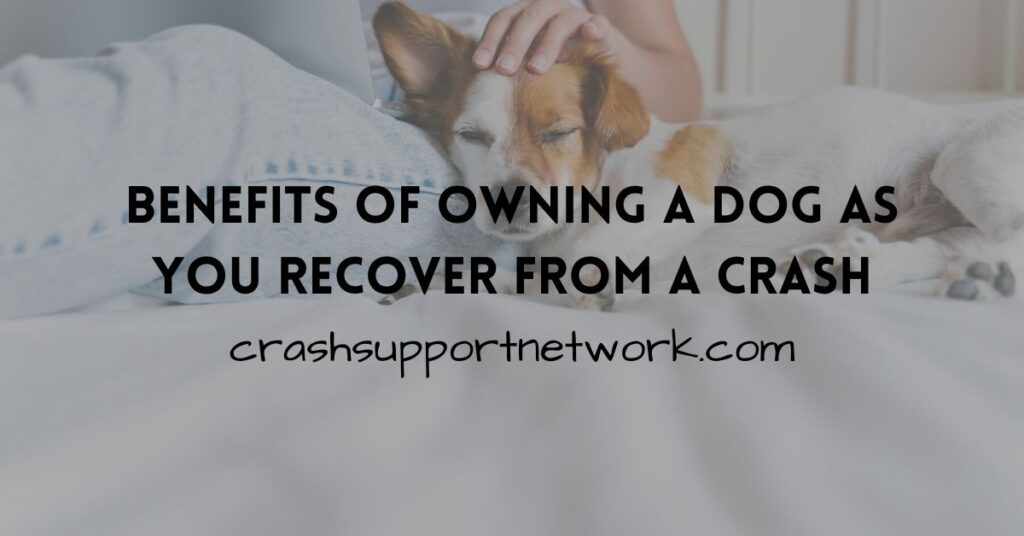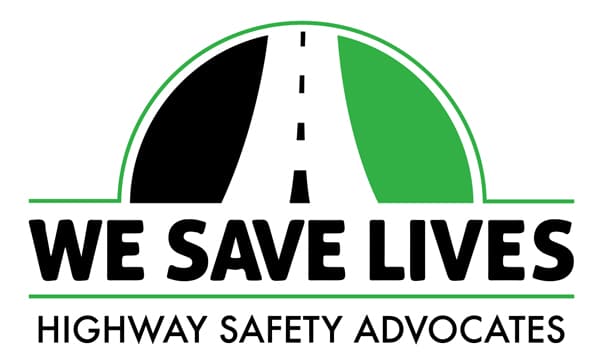
Owning a dog as you recover from a motor vehicle crash can be beneficial as your life can change in significant ways after an auto collision. A warm and caring environment is important in recovery and who better to provide unconditional love and support than a dog? You can rest assured that your furry friend won’t ever judge you or question your feelings and they will always be there to cuddle with you when you need them the most. Dogs also help prevent loneliness and isolation which is quite common for survivors as we try to pick up the pieces after surviving a crash. Owning a dog as you recover can lift your mood or help you feel less stressed and dogs can help you feel better by providing companionship. All dog owners, including those who have post-traumatic stress disorder (PTSD) can experience these benefits.
What Are The Emotional Benefits of Having a Dog?
Dogs can make great pets while you recover from a motor vehicle crash.
- Dogs help bring out feelings of love;
- Dogs are good companions;
- Dogs take orders well when trained;
- They are fun and can help reduce stress;
- Dogs give you a purpose, which can be a very big morale boost when you’re in a difficult physical or emotional state.
- They are a good reason to get out of the house and spend time outdoors if you are able to.
What is an Emotional Support Dog?
An emotional support dog is a pet that helps their owner with a mental health condition. Emotional support dogs help their owners feel better by giving friendship and companionship. These dogs are also called comfort dogs or support dogs. An emotional support dog does not need special training.
What is a Service Dog?
A service dog is a dog trained to do specific tasks for a person that he or she cannot do because of a disability. Service dogs can pick things up, guide a person with vision problems, or help someone who falls or loses balance easily. For example, a service dog can help a blind person walk down the street or get dangerous things out of the way when someone is having a seizure.
Protecting someone, giving emotional support or being a companion does not qualify a dog to be a service animal. To be a service dog, a dog must go through training. Usually the dog is trained to:
- Do things that are different from natural dog behavior;
- Do things that the handler (dog owner) cannot do because of a disability;
- Learns to work in ways that help manage the owner’s disability.
Because the handler depends on the service dog’s help, service dogs are allowed to go to most public places the handler goes. This is the case even if it is somewhere pet dogs usually cannot go, like restaurants or on airplanes as long as the service animal is not aggressive, unsafe or disruptive.
Dogs Can Be an Excellent Distraction
Dogs can help you deal with Post-Traumatic Stress Disorder (PTSD) as leaning on your pet for emotional support is very therapeutic. They will always be ready to listen — night or day, holidays, weekends, whenever — and won’t offer their opinion. They won’t look at you any differently no matter what you say. You can vent to them about a bad flare up day or your doctor’s appointment and you can even tell them a joke when you need a laugh. Owning a dog as you recover can also be an excellent distraction. Too much idle time can lead you to dwell on your challenges and struggles but having your dog as at your side will make you feel more supported. Most of all you will feel safe and protected.
Pets, service animals, and emotional support dogs need owners who can provide for them. If you have a dog and find yourself suddenly recovering from a crash, ask a friend or family member to help out with their care if you do not feel up to it. Dogs require constant attention and care so if you are thinking about getting a dog, it is a good idea to discuss it with your physician or family before making a decision. If you have PTSD and are worried that it may be hard for you to provide a safe, caring home for a dog, it may be good to wait until after you get treatment for your PTSD and feel more comfortable.
Having a companion animal to stand by you in the dark times and celebrate with you in the light may be one of the best choices you will ever make. Also, speak with your legal representative as you may have access to benefits from a personal injury which could cover some of the costs involved with obtaining a service animal to assist in your recovery.
If you don’t have a dog in your life like myself, you can always check out the adventures of Survivor Davis on Instagram! He is not only a Warm Buddy, great companion and our Mascot but he also adds much needed relief to many chronic pain issues that I continue to face after surviving a horrific motor vehicle crash. Davis not only hosts our Friday Focus but he also shares tips and advice to crash survivors.
How has your dog helped you in your recovery? We would love to hear from you!
S. Dawne McKay is a survivor of a horrific crash that changed her life forever. Dawne shares her personal journey as a Crash Survivor Blogger and also collaborates with crash survivors as Guest Bloggers allowing them an opportunity to share their stories. Dawne is also the author of the book, “Talk Crash to Me – What to Expect After Surviving a Collision and How to Manage Your Recovery” which is available for purchase on Amazon.
The Crash Support Network is a unique one-of-a-kind website consisting of an online support group, a crash survivor blog, a quarterly newsletter, “Sharing Our Recovery” as well as highly informative articles. Our website is based on relationship-building and puts the needs of survivors first by creating a helpful resource for victims and survivors of motor vehicle crashes.





